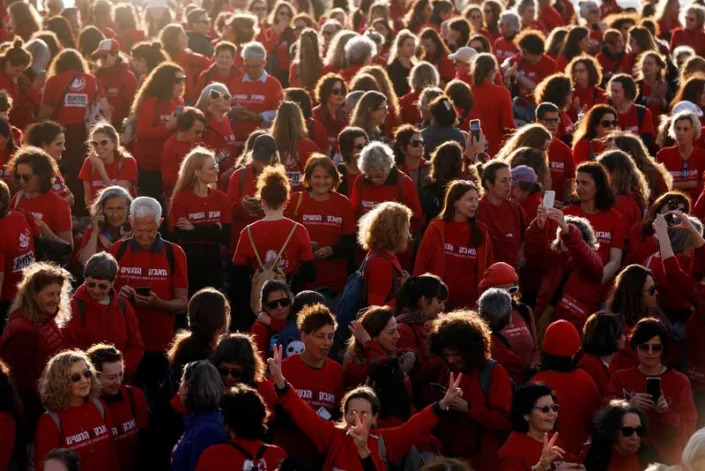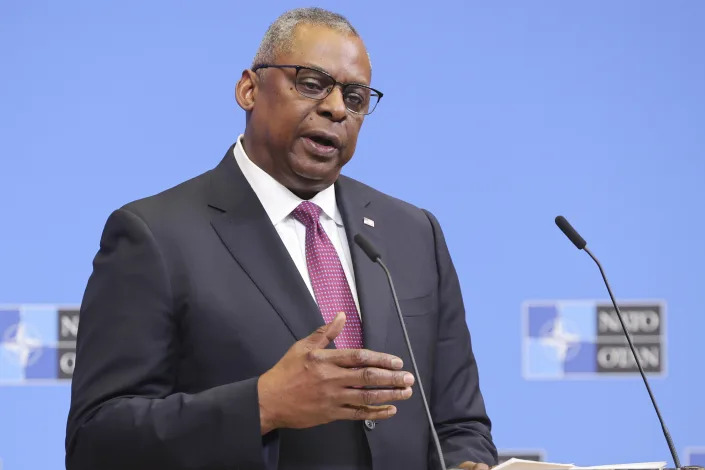This bill could make the four-day workweek a reality

Taylor Telford, (c) 2023, The Washington Post

Taylor Telford, (c) 2023, The Washington Post
Wed, March 8, 2023
The movement for a four-day workweek is gaining ground.
Dozens of U.K. companies just wrapped up the biggest pilot program to date, with more than 90 percent of firms saying they wouldn't go back to working five days a week. States and municipalities across the United States are considering ways to encourage more employers to give it a go.
And last week, Rep. Mark Takano (D-Calif.) reintroduced a bill in the House that would make the 32-hour workweek a national standard and lower threshold triggering overtime compensation for most employees.
The previous iteration of the bill did not get a hearing in committee last year and could have a tough path to floor time in a Republican-controlled House. But Takano is enthusiastic about its potential to help American workers. The bill has been endorsed by 4 Day Week Global, the American Federation of Labor and Congress of Industrial Organizations (AFL-CIO), Service Employees International Union and the United Food and Commercial Workers Union.
"Workers across the nation are collectively reimagining their relationship to labor - and our laws need to follow suit," Takano said in a statement introducing the bill. "We have before us the opportunity to make common sense changes to work standards passed down from a different era."
Takano talked with The Washington Post about the push to reform the workweek and why it matters. Here are five questions posed, and his answers, lightly edited.
Q: Where did the motivation for this bill come from?
A: My staff and I had discussed introducing legislation in 2020 or 2021, but I delayed introduction of the bill because there was a lot of distraction, because of covid. I just felt that the country was anxious about what was going on with adapting to the reality of the pandemic, and I wanted to make sure I introduced the bill at a decent time.
During the pandemic, the United States saw over a million of our fellow countrymen and women die. We became more conscious about the finitude we all have, and we saw a Great Resignation occur, especially among service workers in the restaurant industry. People began to get serious about what they really wanted to do in life, and people had more flexibility in their jobs. People like it and still want it.
Q: Is this the right time to rethink the workweek?
The post-pandemic moment is still a moment of openness to change, and until now we haven't really considered this kind of change seriously.
But the four-day workweek is something that's been introduced before: [former president] Richard M. Nixon, when he was a vice-presidential candidate, even said he thought this was something that was going to be inevitable. And this was two decades after the 40-hour workweek was codified into law.
What I'm finding is that there is consistent and sustained interest in this reform. It's not going away. When I've traveled to other advanced economies and labor workforces, this workforce issue of more flexibility and a better work life balance, it's a trend happening in other countries not just in the United States. It's going to take this collective reform among advanced economies to make this a reality.
Q: What are the benefits of a shorter workweek?
A: We've undergone tremendous technological change over the past few decades which has created more productive workers, but that productivity has not translated into better working conditions or hours in terms of the time people have to themselves.
As a society we can definitely make these decisions to change that work life balance and improve that work life balance so that health and happiness can all be increased without reducing how productive we are.
Q: What are the barriers to making the 32-hour workweek a reality?
A: Our biggest barrier is going to be: "How do we make sure we move to lesser hours but not less compensation? How is that going to work?"
I think it's very possible to say, if you're a coder working for a tech firm that's in AI or whatever - it's an intellectual occupation. I think people can get that increasing the number of hours you work doesn't necessarily increase your output. You can wrack your brain only for so long, and you could be open to the possibility that more time to yourself can equate to somebody who's just as productive.
Less obvious is how, if you have a production line, you're probably going to have to increase the number of people you have, if you don't want to pay overtime. How is it that we'll find a wage or compensation equilibrium that allows for 32 hours of work to be equivalent in pay to the 40 hours that were once worked?
How we make that shift in terms of hourly workers is a challenge, but I believe it can be done. I believe there are pathways to having that happen. One key factor is - besides working on the adjustment of the overtime rule, which is what my bill does - we also have to pay attention to the ability of workers to unionize to bargain for higher wages.
This reform has to coincide with other kinds of reforms so that we are moving compensation in the right direction.
Q: Would this expand access to flexible work?
A: The 32-hour workweek discussion is already occurring in certain sectors of the economy. It's occurring in the tech space. The California San Francisco Bay Area is seeing waves of interest. Panasonic went to a 32-hour workweek. Kickstarter is a company that has explored this and one of their executives is a cheerleader for this whole movement.
What we need to examine is how this can become the norm across the various workforces in America. Now of course, across sectors the ability to be that flexible is just not going to the be the same if you're someone who has to show up and punch the clock and be a carpenter or to be plumber. These are the sorts of things we need to engage with in a public debate and that's what my legislation will definitely do.
 |
| 1933 |























